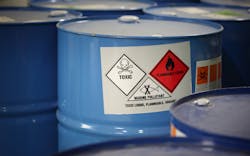Six U.S. universities to study environmental impacts of manufactured chemicals
Endocrine disrupting chemicals that end up in the environment are a serious concern. Research shows that they can cause adverse developmental, reproductive, neurological and immune effects in both humans and wildlife.
The U.S. Environmental Protection Agency (EPA) is hoping to reduce this risk with the award last week of almost $4 million in funding to six universities. Academics will study the ecological impacts of manufactured chemicals, leading to better chemical risk assessments and decisions for protecting the environment, the agency said.
“This innovative research will provide new approaches to evaluate how chemicals influence the health of ecological systems. These approaches can help predict and, more importantly, prevent chemical impacts,” explained Thomas A. Burke, EPA science advisor and deputy assistant administrator of the agency’s Office of Research and Development.
“This knowledge will help us more effectively protect the environment from adverse impacts of chemicals over time.”
All six projects are expected to develop and apply innovative methods and models to better understand and predict the biological and ecological consequences of exposures to chemicals in the environment.
For example, researchers at the University of North Carolina Wilmington will receive $399,884 for work to develop a model for measuring ecological impacts of endocrine disrupting chemicals in estuaries and marine ecosystems.
Meanwhile, the University of California, Santa Barbara, plans to develop a model to enhance understanding of how the effects of exposure to chemicals are expressed within an organism.
Other projects will be undertaken at Harvard University, Michigan State University, Oregon State University and Texas Tech University.
The six STAR (Science to Achieve Results) grants are part of efforts by the EPA’s Chemical Safety for Sustainability (CSS) research program to develop new methods to improve chemical evaluation and support environmental sustainability.
